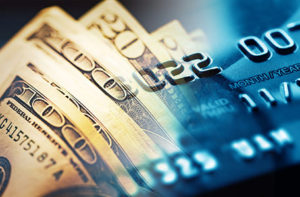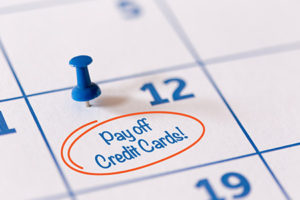Credit Card Debt Relief

Credit card debt settlement is a negotiation process where a debtor tries to convince a lender to accept a sum that is less than the full debt owed to satisfy as repayment. This type of credit card debt relief can expunge between 50-80% of the total debt owed. Although it can be difficult to work out on your own, credit card debt settlement can provide you with ample financial breathing room when the process is handled by experienced debt professionals. If you’re looking for experienced help with credit card debt, find the most effective way to pay off your credit cards.
Credit card companies want to be paid back what is owed in full. Part of your arrangement when making use of a credit card is that you’ll pay back all the fees you’ve built up plus any interest that has accrued. Oftentimes, bank card issuers recognize that getting payment for all the credit extended to a debtor is unrealistic and unlikely to happen. To recover the funds, they may chase you via a collections agency or get a legal representative, but often it isn’t worth the cost, creating the opportunity to get relief through a credit card settlement.
The majority of credit card debt is unsecured, which means that your creditors have nothing to collect on, no house to repossess or wages to garnish, when the debt goes unpaid. Financial institutions also understand that if you apply for personal bankruptcy, it’s very possible they may never see a single dime of the credit card debt repaid. When confronted with the possibility of obtaining no repayment from you at all, your credit card company may want to work out a deal with you for less than the full amount as part of what’s called a credit card settlement. Due to economic uncertainty and the overwhelming number of people that need help with credit card debt, creditors are left with little choice but to negotiate credit card debt settlement deals. One way to negotiate these deals is through the utilization of a credit card debt relief program.
Types of Credit Card Debt Relief
There are a number of different relief programs designed to help with credit card debt management through tried-and-true credit card debt solutions.
Lump-sum Credit Card Settlement

If you have access to a decent chunk of cash, such as from an inheritance, you can attempt to discuss a settlement for less than the full amount owed. Typically, the credit card debt relief repayment can be broken up into 3 segments.
With a lump-sum settlement, it’s important that both you and your lender are clear that the agreed-upon amount will satisfy the costs of the credit card debt and to get this agreement in writing. It’s also important to understand that paying less than what you owe can negatively influence your credit score depending on how the repayment is reported to the major credit bureaus.
If a loan provider forgives $900 worth of the principal amount of your credit card debt, it must report that amount to the IRS because it is greater than $600. For example, a lump sum payment of $2,500 to work out a $4,500 credit card debt will likely mean that you’ll have to pay taxes on an additional $2,000 in earnings next year.
Workout Arrangement for Credit Card Debt
With this type of credit card settlement, the bank might eliminate or reduce your minimum monthly payments, rate of interest, and may even stop assessing late charges or over-limit fees. You may also be able to ask the lender to forgive previous fees to lower the balance even further.
Looking for a debt relief expert to help you work out an arrangement? Contact us at New Era Debt Solutions today.
Forbearance Program
If your economic problem is only short-lived, such as a major medical occasion that places you unemployed for a couple of months, a forbearance program may be the right form of credit debt relief for you. With this type of credit card debt relief program, the bank card issuer may get rid of or lower your interest rates and place a halt on late charges.
Forbearance programs offer a brief break from complete payments, not forgiveness of any credit card debt. A forbearance is for momentary economic issues when you know your finances and revenue will certainly return to regular quickly. This type of program offers temporary help with credit card debt while get you back on your feet financially. Likewise, you will still pay back every penny you obtained, and possibly a lot more.
Credit Card Debt Management Plan

If you don’t intend to negotiate with your creditors yourself, you can sign up for a credit card debt management plan. With this form of credit card debt relief, a financial counselor will meet with you to discuss your circumstance and arrange repayment to each of your creditors. The counselor will communicate with the lender(s) to reorganize your repayment of credit card debt so it’s cost-effective and more affordable. Commonly, the counselor can work out a decrease in your rate of interest, minimize or drop additional fees, and reduce your monthly credit card debt payments.
This form of credit card debt relief often requires that you pay the entire amount owed. The other downside is that being enrolled in a debt management plan could have a small effect on your credit rating. Shutting down credit card accounts is likely to cause at least some injury to your credit score. So, while this form of debt relief can directly help with credit card debt relief, it can be somewhat detrimental to your finances in other ways.
Credit Card Debt Settlement Program
With the option of credit card debt settlement, such as the services New Era Debt Solutions offers, you or your debt settlement company negotiates with the lender to agree upon a settlement. This settlement balance is often significantly less than the total credit card debt that is owed, but satisfies repayment of the debt. This form of relief from credit card debt is less harmful to your credit score than bankruptcy and can offer some immediate alleviation from financial pressure.
The biggest risk with credit card settlement is that deciding to end payments on your debts can potentially do considerable damage to your credit history, but paying a percentage of what you owe is far better than paying absolutely nothing.
Alternatives to Credit Card Debt Relief

How do you get credit card debt relief? For many, the answer is credit card debt settlement. But is that the best option for relieving credit card debt? It’s important to review all your options and make the best decision based on your financial reality. Finding the right credit card debt solution that matches the commitment you are able to make can lead to less stress and overall debt.
- Debt consolidation loans that are not themselves tied to credit cards make sense for some. But typically, in order to get a decent interest rate, the loan would need to be secured. Low-interest unsecured credit accounts do exist but are only offered to people without credit or income issues. Many people consider consolidation loans to be the worst way to get rid of credit card debts. Why? Because although the payments may be lower, the loan would be stretched over years and the eventual money paid for the original debt can be quite a lot higher when interest is factored in.
- Every borrower knows that the last and worst option for eliminating credit card debt is filing for bankruptcy. The 2005 congressional alteration of the United States bankruptcy code makes this option even less appealing than it previously was. The Internal Revenue Service was heavily involved in the passage of this legislation, so you can be sure it isn’t meant to benefit the debtor.
- Debt settlement may seem like Consumer Credit Counseling, but the differences between these two options are very significant for relieving credit card debt. The companies that work on credit card debt settlement work on behalf of the debtors and not on behalf of the credit card companies. This makes professional credit card debt settlement rise to the top as the most viable option for persons who qualify.
Credit Card Debt Relief FAQs
Do Credit Card Debt Relief Programs Work for Everyone?
Credit card debt relief programs may be the right choice for you if you’re looking to move forward in a positive direction with your finances, but they may not be the best debt relief option for everyone. You may want to consider credit card debt relief when you feel that no matter how hard you try, your debt is insurmountable, and you’ll never be able to get out of it, but it’s always important to consider whether a credit card debt relief program is the right choice for your finances. Many companies offer advice and relief for consumers like yourself. Before spending money on one of these programs, it’s important to investigate them thoroughly so you can learn what happens during each phase of any program.
Does Credit Card Debt Relief Hurt Your Credit Score?
This question is of great concern for many people who are considering credit card debt relief programs. While it’s difficult to say definitively what effect credit card debt relief will have on your credit score, you can expect that your credit score may suffer a little. The good news is that once you make all payments as scheduled, your credit score should bounce back and potentially be even higher than it was before. It’s also important to note that while credit card debt relief may hurt your credit score in the short term, it could actually help you in the long run by reducing your overall interest rate and allowing you to pay off debts faster. If possible, consider using a balance transfer card or personal loan if you want more time to pay off debts without hurting your credit score.
How Can a Credit Card Debt Settlement Be Negotiated?
If you’re struggling with too much credit card debt, you may have considered a settlement as an option for relief. Credit card debt settlements are agreements between your creditor and yourself where you provide a lump sum payment of your account balance in order to have that debt forgiven or at least partially reduced. It is possible to negotiate with your creditors directly, but working with a reputable settlement company can make a massive difference in the outcome of your settlement negotiations. Before reaching out to a creditor to initiate a settlement discussion, make sure you understand what rights and protections (if any) apply under federal law, and never be afraid to ask an experienced debt expert for help.
How Does Credit Card Debt Settlement Affect Your Credit Score?
Credit card debt settlement can help you get out of credit card debt, but it can also have a negative effect on your credit score in the short term. If you’re considering using a company that helps people settle their debts, you can ask that firm how much of an impact they expect the settlement to have on your credit score. You should also check with your creditors and make sure they are okay with you settling your debt for less than what is owed.
What is the Easiest Way to Get Out of Credit Card Debt?
The answer to this question depends on your individual circumstances. Getting out of credit card debt can be challenging, but it is possible with the right plan and motivation. Let’s start by assessing your current financial situation. Look at how much debt you have and what interest rate or fees you pay. Once you understand the specifics of your credit card debt, it’s time to create a plan.
A debt consolidation loan is the most effective way to tackle credit card debt. A debt consolidation loan is a personal loan that allows you to combine multiple debts into one, often with a lower interest rate or better terms. It also simplifies your monthly payments by having just one amount instead of several. Other options exist if you don’t qualify for a debt consolidation loan or the rates are too high.
How Do You Qualify for Credit Card Debt Relief?
If you struggle to pay off your credit card debt, relief may be available. Credit card debt relief can help you manage the debt burden by reducing the interest rate and fees associated with your loan. To qualify for credit card debt relief, you must meet specific criteria and have a good payment history.
The first step to qualify for credit card debt relief is to review your finances. You need to determine what type of credit card debt you have and how much you owe on each card. You must understand the cards’ terms and conditions before deciding which one to pursue relief.
Get Help with Credit Card Debt Relief
Upon reviewing your options, you may decide that a credit card debt relief program is best obtained through a professional debt settlement company. If you have over $10,000 in unsecured debt, we recommend that you speak with a debt relief specialist who can help determine if debt settlement is the best option for you.
